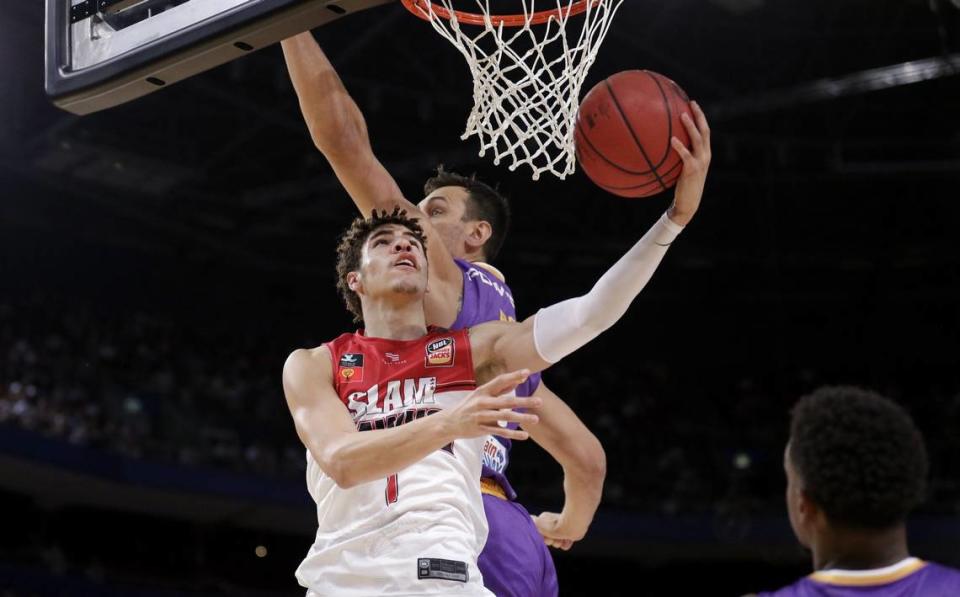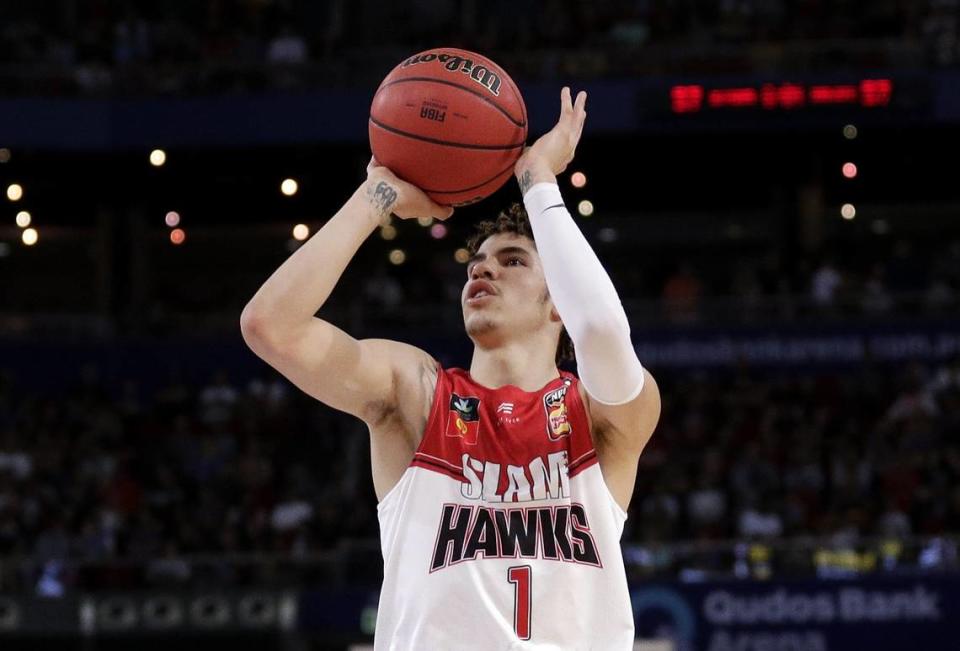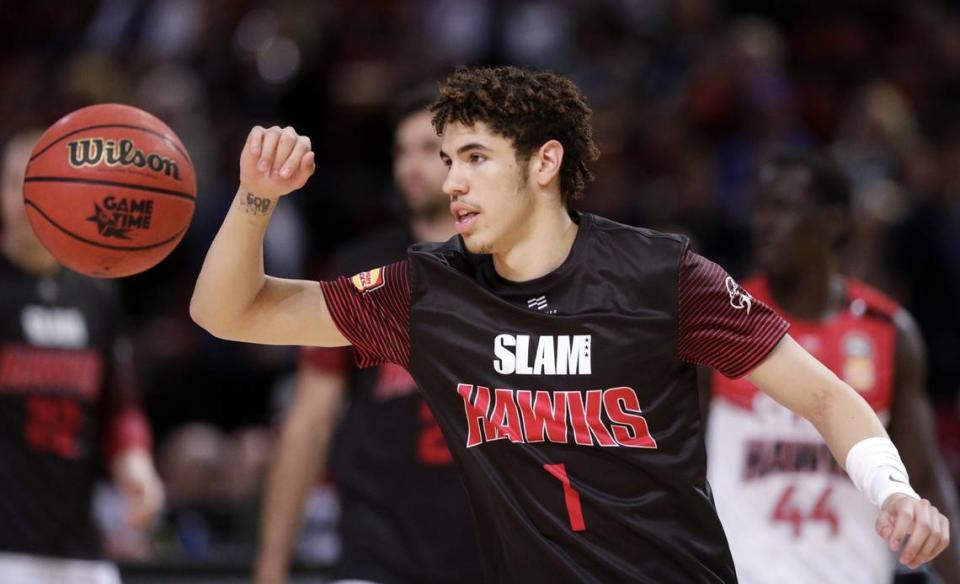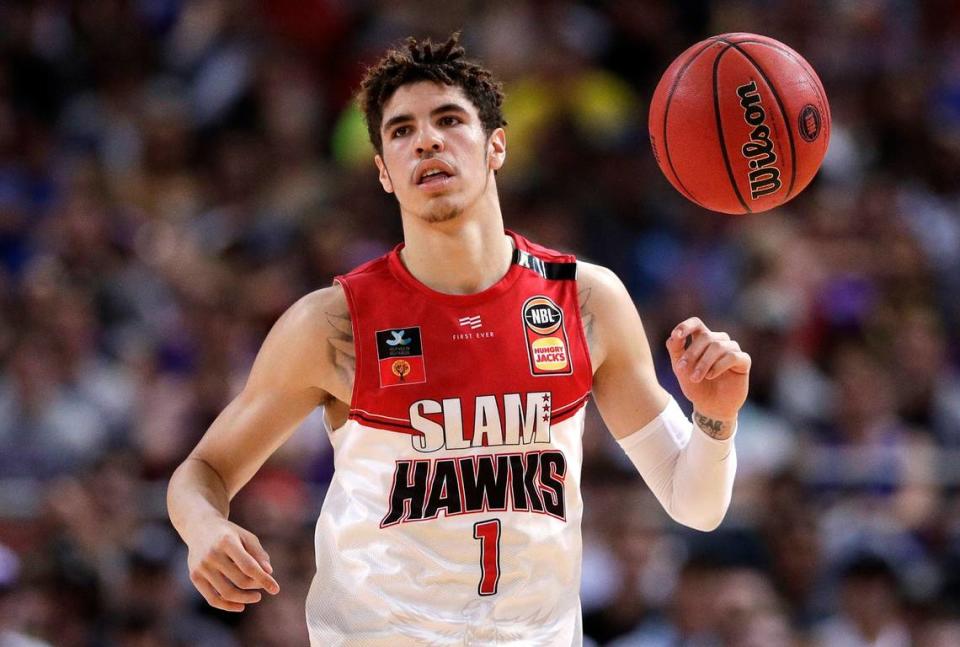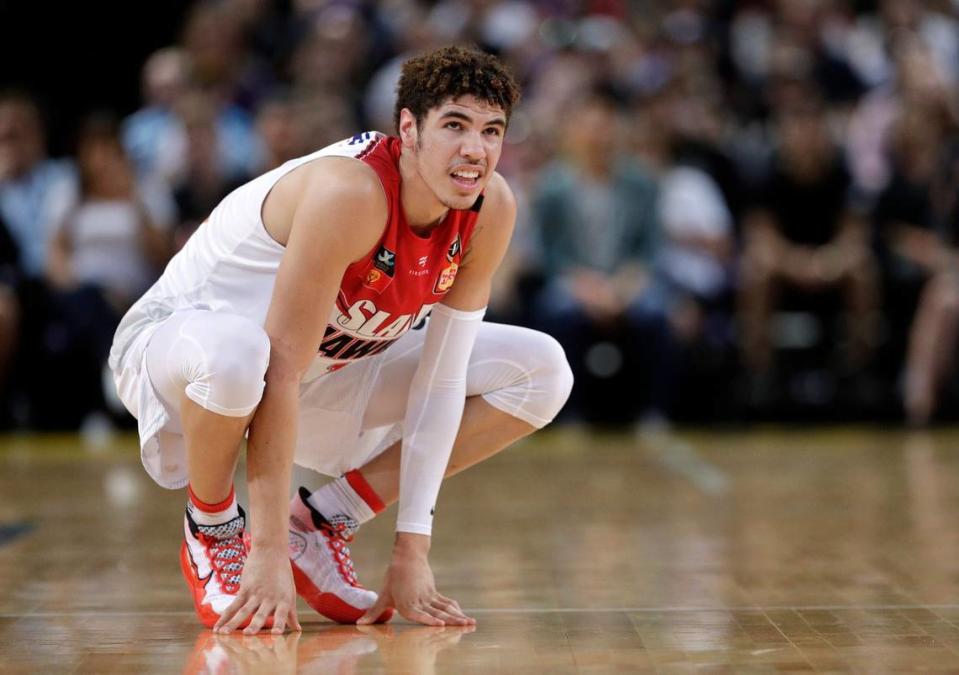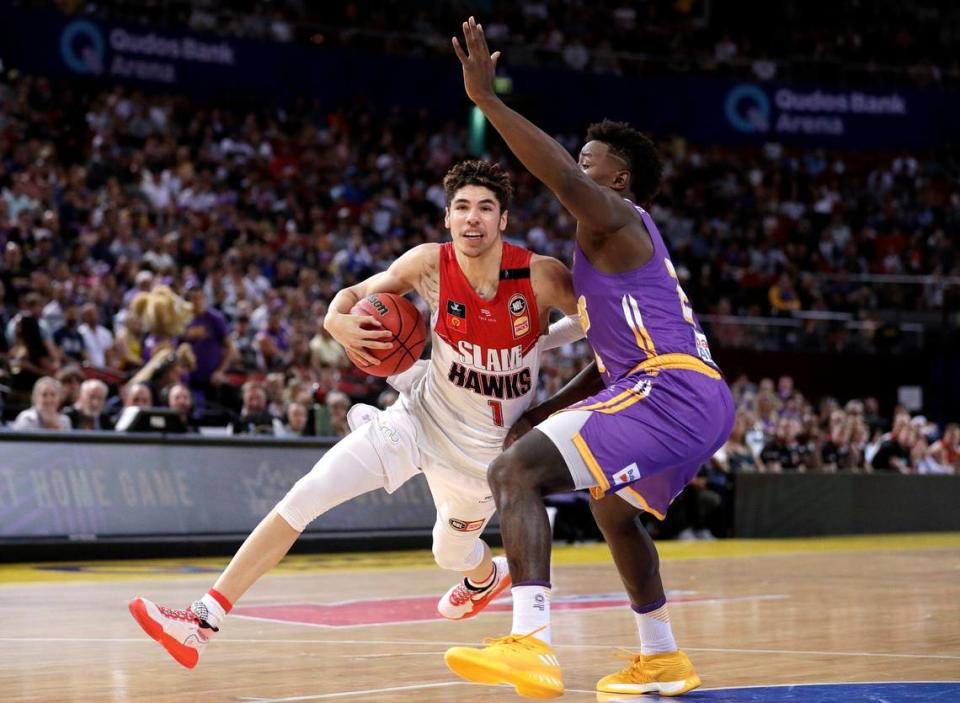Why the Charlotte Hornets picked LaMelo Ball 3rd in the NBA Draft
- Oops!Something went wrong.Please try again later.
- Oops!Something went wrong.Please try again later.
The thing the Charlotte Hornets’ need above all else is a star, and they hope gifted passer LaMelo Ball is that guy.
The Hornets chose Ball, a point guard, with the No. 3 selection in Wednesday’s NBA draft. It was the highest selection for the Hornets since Michael Kidd-Gilchrist was chosen by Charlotte second overall in 2012.
“I’m definitely excited. I’ve been seeing them every since I was young, for real,” Ball said of the Hornets. “Miles (Bridges) at Michigan State and P.J. (Washington), I played him when he was at Findlay (a prep school in Nevada). Those are some high fliers who can get up and go.”
Hornets general manager Mitch Kupchak said he likes Ball’s potential to help increase the Hornets’ pace.
“We were comfortable with whoever was there at 3,” Kupchak said of the grouping of Anthony Edwards (first to Minnesota), James Wiseman (2nd to Golden State) and Ball. “I’m very excited about having LaMelo. He’s going to be fun to watch. He loves the game. He’ll push the basketball up and down the court.
“He is young. He’s very talented. There will be growing pains along the way.”
With the 32nd pick -- two picks into the second round -- the Hornets selected Duke center-forward Vernon Carey, Jr. The Hornets also added Kentucky big man Nick Richards in the second round, via trade. The Hornets will send a 2024 second-round pick to the New Orleans Pelicans for Richardson’s draft rights.
With the 56th pick, the Hornets selected College of Charleston point guard Grant Riller.
Kupchak said Ball will have to earn a starting spot on a team with two incumbent point guards in Devonte Graham and Terry Rozier.
“There are a lot of expectations on the third pick. The way our coach works, nothing will be given to you. It must be earned,” Kupchak said, referring to coach James Borrego.
Is Hornets general manager worried about splitting minutes between LaMelo Ball and Devonte' Graham? Not even a little. #AllFly pic.twitter.com/pZm4QSu4IL
— Matt L. Stephens (@MattStephens) November 19, 2020
Ball has played professionally in Lithuania and most recently in Australia. Younger brother of New Orleans Pelican Lonzo Ball, LaMelo is 6-foot-7 and known for having rare court vision and playmaking ability.
Ball has no lack of confidence; asked by nba.com before the draft about potentially being the No. 1 pick, he said he was “born” for this.
“I don’t look at anything like that as pressure. Being the No. 1 pick definitely holds a lot, but I feel like I was born for it,” Ball said.
“He’s a fabulous passer and just unique passing instincts,” said ESPN draft analyst Jay Bilas of Ball.
While Ball will provide positional size and should improve the Hornets’ ball-movement, he isn’t a strong jump-shooter, a priority for the position. When a point guard isn’t a 3-point threat, it’s easier for defenses to cut off his penetration and playmaking in pick-and-rolls.
Ball shot just 25% from 3-point range last season for Illawarra of the Australian league, and he averaged nearly seven attempts from 3-point range.
“He is not a great shooter, and his mechanics need to be overhauled,” Bilas said. “That was true of his brother, Lonzo, too, but I think his shot is a little bit better than Lonzo” was entering the NBA.
LaMelo Ball’s upbringing
Ball started high school basketball in Southern California, then played professionally in Lithuania briefly, returned to high school at SPIRE Institute in Ohio and ultimately joined the pro league in Australia. His father, bombastic and controversial LaVar Ball (briefly a Carolina Panther), put the family in a web reality show called “Ball in the Family.”
As Bilas said pre-draft, that unorthodox upbringing raises questions for teams.
“He bounced around and had a Kardashian-like kind of environment around him,” Bilas said. “He didn’t have what I would consider a normal process out of high school for a great player, a great prospect.
“That doesn’t mean he’s not going to step into a team and operate smoothly and be a terrific teammate, and all that stuff. But I’d want to know that” before selecting him.
How LaMelo Ball fits with the Hornets
While general manager Mitch Kupchak has said the Hornets need upgrades at every position, they are relatively deep at point guard with Devonte Graham and Terry Rozier. Graham had a breakthrough season that lifted him from a former second-round pick to starter. Rozier enters the second season of a three-year, $56.7 million contract.
Rozier can play either point or shooting guard. Graham’s strength is Ball’s weakness — 3-point shooting (37% last season). Figuring minutes between those three could be a challenge for coach James Borrego, but one he will welcome for the talent and size Ball provides.
